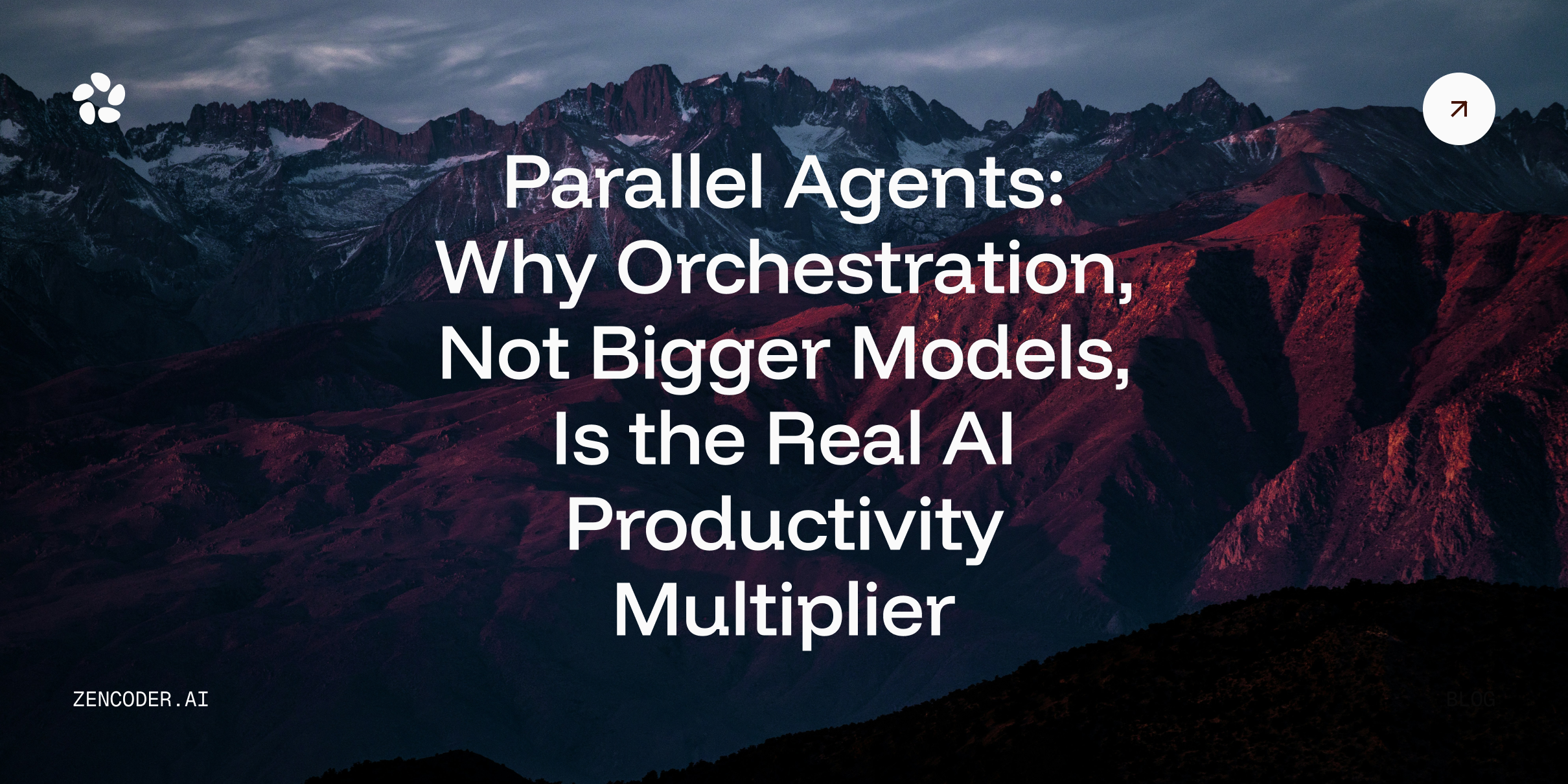Introduction
AI code generation platforms, such as ChatGPT, CodiumAI, Github Copilot, Zencoder, Amazon CodeWhisperer, and similar tools, are advanced systems that leverage artificial intelligence to assist developers in writing code more efficiently. These platforms, including GitHub Copilot, can generate code snippets, provide intelligent code completion suggestions, and enhance automation by detecting potential bugs in real-time within the framework of your project. By understanding natural language descriptions and context, AI code generation platforms can significantly accelerate the coding process through automation and innovative techniques within a coherent framework, making them invaluable for software engineers.
Benefits to Software Engineers
- Increased Productivity: AI tools can automate repetitive coding tasks, allowing developers to focus on more complex aspects of their projects.
- Error Reduction: Real-time bug detection and intelligent code suggestions help minimize errors and improve code quality.
- Learning and Adaptation: These platforms often adapt to individual coding styles and provide educational insights, helping developers learn new techniques and best practices.
- Collaboration: Many AI code generation platforms offer collaborative features, enabling teams to work together more effectively.
Key Features of AI code Generation Platforms
1. Code Generation: AI code generation platforms often leverage NLP to understand natural language descriptions and convert them into code. This allows developers to describe what they want to achieve in plain English, and the platform generates the corresponding code.
2. Intelligent Code Completion: These platforms provide intelligent code completion suggestions based on the context of the code being written. This feature helps developers write code faster and with fewer errors.
4. Code Refactoring: Automated code refactoring tools help improve the structure and readability of the code, making it easier to maintain and understand.
5. Unit Test Generation: Automated unit test generation helps ensure that the code is thoroughly tested and meets quality standards.
6. Docstring Generation: Automated docstring generation provides comprehensive documentation for the code, leveraging automation to make it easier to understand and maintain.
7. Code Repair: Code repair features can automatically fix issues in the code by adding context around the developer's environment and repository, and with agentic improvements while seamlessly integrated with existing workflows.
8. Support for Multiple Programming Languages: A versatile AI code generation platform supports a wide range of programming languages, making it useful for developers working in different languages.
9. Seamless Integration with Code Editors" Integration with popular code editors such as Visual Studio Code, Jetbrains enhances the overall development experience by allowing developers to use the platform within their preferred coding environment.
10. User-Friendly Interface: An intuitive and easy-to-use interface makes it accessible for developers of all skill levels, reducing the learning curve and increasing productivity.
11. Context-Aware Code Suggestions: By understanding the broader context of the project, AI code generation platforms can provide more accurate and relevant code suggestions, reducing the need for manual adjustments and debugging.
By incorporating these key features into a comprehensive framework, AI code generation platforms can significantly enhance the coding experience, making them invaluable tools for developers.
1. Zencoder
Zencoder is an AI coding agent-based platform that stands out among the top AI code generation platforms for developers. Using syntactic and semantic analysis of the repository and of the generated code, Zencoder embedded coding agents iteratively improve the results for developers. Its intuitive interface and comprehensive code generation capabilities make it a preferred choice for developers.
Zencoder's proprietary agentic pipeline can repair code by adding context around the developer's environment and repository, coupled with DevOps tooling. This unique innovation allows Zencoder to not only generate code but also ensure that the code integrates seamlessly with the existing development environment and workflows. By understanding the broader context of the project, Zencoder can provide more accurate and relevant code suggestions, reducing the need for manual adjustments and debugging.
Key Features
- High-Quality Code Generation: Zencoder excels in producing high-quality code that adheres to best practices and industry standards. The platform's sophisticated algorithms and agentic improvements ensure that the generated code is efficient, maintainable, and free of common errors.
- Unit Tests: Zencoder automatically generates and executes the unit tests for the code it produces. This feature helps developers ensure that their code is functioning as expected and reduces the time spent on manual testing.
- Docstring Generation: Zencoder can generate comprehensive docstrings. These docstrings provide valuable documentation, making it easier for developers to understand and maintain the code.
- Advanced AI Pipeline: Zencoder's advanced AI pipeline leverages state-of-the-art machine learning algorithms to analyze code patterns and understand project requirements. This enables the platform to generate highly accurate and contextually relevant code snippets tailored to specific tasks.
- Intuitive Interface: Zencoder's user-friendly interface makes it easy for developers to interact with the platform. The intuitive design ensures that users can quickly access the features they need and integrate Zencoder into their existing workflows.
- Embedded AI Coding Agents into Developer Workflow: Zencoder seamlessly integrates its AI coding agents into the developer's workflow. This allows developers to leverage Zencoder's capabilities directly within their preferred development environments, enhancing productivity and reducing context switching.
Pros
- High Accuracy in Code Generation: Zencoder's advanced algorithms ensure that the generated code is highly accurate and contextually relevant.
- Comprehensive Testing and Documentation Features: The platform's ability to generate unit tests and docstrings helps ensure code quality and maintainability.
- User-Friendly Interface: Zencoder's intuitive design makes it easy for developers to use the platform effectively.
- Seamless Integration with DevOps Tools: Zencoder integrates well with existing DevOps tools, enhancing the overall development workflow.
Cons
- Limited IDE Support: Zencoder currently supports Visual Studio Code and Jetbrains(coming soon).
Pricing
- Free: $0/month
- Business: $19/month
- Enterprise: Custom pricing
2. GitHub Copilot
GitHub Copilot, developed by GitHub , is a leading AI code generation platform. Powered by GPT, Copilot can generate code suggestions based on natural language descriptions. It supports multiple programming languages and provides developers with a vast library of code examples to accelerate their coding process.
Key Features
- Code Generation: GitHub Copilot can understand natural language descriptions and convert them into code. This allows developers to describe what they want to achieve in plain English, and Copilot will generate the corresponding code.
- Support for Multiple Programming Languages: Copilot supports a wide range of programming languages, including Python, JavaScript, TypeScript, Ruby, and more. This makes it a versatile tool for developers working in different languages.
- Extensive Library of Code Examples: Copilot has access to a vast library of code examples from open-source projects. This allows it to provide relevant code suggestions based on best practices and commonly used patterns.
Pros
- Seamless Integration with GitHub: Copilot integrates directly with GitHub, making it easy to use within the GitHub ecosystem.
- Supports a Wide Range of Languages: Copilot's support for multiple programming languages makes it a versatile tool for developers.
Cons
- Requires a GitHub Subscription: Access to Copilot requires a GitHub subscription, which may be a barrier for some users.
- May Generate Incorrect Code: In complex coding scenarios, Copilot's suggestions may not always be accurate, requiring manual adjustments by the developer.
- Increase in debugging time for developers: Developers have reported increase in code churn rate(% of lines that are revised within 2 weeks of generation), resulting in increase in code debug time.
- No Free User Plan: Github Copilot does not provide a free user tier.
Pricing
- Individual: $10/month or $100/year
- Business: $19/user/month
- Enterprise: Custom pricing
3. Sourcegraph/Cody
Sourcegraph/Cody is an AI code generation platform that combines the power of Sourcegraph's code intelligence with Cody's AI capabilities. It offers intelligent code completion, code navigation, and code search functionalities. With its deep understanding of code patterns and structures, Sourcegraph/Cody can assist developers in writing clean and efficient code.
Key Features
- Code Completion: Sourcegraph/Cody provides code completion suggestions based on the context of the code being written. This helps developers write code faster and with fewer errors.
- Code Navigation: The platform offers code navigation features, allowing developers to easily jump to definitions, references, and implementations within their codebase. This improves code readability and maintainability.
- Code Search: Sourcegraph/Cody includes code search capabilities, enabling developers to quickly find code snippets, functions, and classes within their projects. This saves time and enhances productivity.
Pros
- Good Code Navigation and Search Features: Sourcegraph/Cody's navigation and search capabilities make it easy for developers to manage and understand their codebases.
- Supports Multiple Languages: The platform supports a wide range of programming languages, making it versatile for different development needs.
Cons
- Can Be Resource-Intensive: The platform may require significant computational resources, which could impact performance on less powerful machines.
- Requires Integration with Sourcegraph: Full functionality requires integration with Sourcegraph, which may add complexity to the setup process.
- Free plan has limited features: Limited LLM's, 500 Autocompletions per month, 20 Messages and commands per month.
- No Unit Test Generation Features: Can not build a plan and execute unit tests.
- No Docstring Generation: Does not generate docstrings.
Pricing
- Free: Limited features
- Team: $15/user/month
- Enterprise: Custom pricing
4. Codeium
Codeium is a powerful AI code generation platform that offers a wide range of features to enhance the coding experience. With its advanced machine learning algorithms, Codeium can generate high-quality code snippets, provide intelligent code completion suggestions, and even detect potential bugs in real-time. Its user-friendly interface and seamless integration with popular code editors make it a top choice for developers.
Key Features
- Code Generation: Codeium can generate high-quality code snippets based on natural language descriptions and context. This helps developers quickly implement functionality without writing code from scratch.
- Code Completion: The platform provides intelligent code completion suggestions, helping developers write code faster and with fewer errors. The suggestions are context-aware and adapt to the developer's coding style.
- Real-Time Bug Detection: Codeium includes real-time bug detection capabilities, identifying potential issues as the code is being written. This helps developers catch and fix errors early in the development process.
- User-Friendly Interface: Codeium's interface is designed to be intuitive and easy to use, allowing developers to quickly access its features and integrate it into their workflows.
- Seamless Integration with Popular Code Editors: Codeium integrates seamlessly with popular code editors such as Visual Studio Code, IntelliJ IDEA, and Sublime Text. This allows developers to use Codeium's features within their preferred development environments.
Pros
- Real-Time Bug Detection: Codeium's real-time bug detection helps developers catch and fix errors early in the development process.
- Easy to Use: The platform's user-friendly interface makes it accessible to developers of all skill levels.
- Integrates Well with Popular Editors: Codeium's seamless integration with popular code editors enhances the overall development experience.
Cons
- Limited Advanced Features: While Codeium offers many useful features, it may lack some advanced capabilities found in other platforms.
- May Not Support All Programming Languages: Codeium's language support may not cover all programming languages, which could be a limitation for some developers.
- Free plan has limited features: The free plan of Codeium offers a limited set of features, which may not be sufficient for more complex or large-scale projects. Developers may need to upgrade to a paid plan to access advanced functionalities and higher usage limits.
- No Unit Test Generation Features:
- Can not build a plan and execute unit tests.
- No Docstring Generation: Does not generate docstrings.
Pricing
- Free: Basic features
- Pro: $12/month
- Enterprise: Custom pricing
5. Tabnine
Tabnine is an AI-powered code completion tool that integrates seamlessly with popular code editors. It uses deep learning models to provide accurate and context-aware code suggestions, significantly improving developers' productivity. Tabnine supports a wide range of programming languages and can adapt to individual coding styles over time.
Key Features
- Code Suggestions: Tabnine provides accurate and context-aware code suggestions based on the code being written. This helps developers write code faster and with fewer errors.
- Seamless Integration with Popular Code Editors: Tabnine integrates seamlessly with popular code editors such as Visual Studio Code, IntelliJ IDEA, and Sublime Text. This allows developers to use Tabnine's features within their preferred development environments.
- Support for Multiple Programming Languages: Tabnine supports a wide range of programming languages, including Python, JavaScript, Java, C++, and more. This makes it a versatile tool for developers working in different languages.
- Adaptive to Individual Coding Styles: Tabnine adapts to the individual coding styles of developers over time. This ensures that the code suggestions provided by Tabnine are tailored to the developer's preferences and coding habits.
Pros
- High Accuracy in Code Suggestions: Tabnine's deep learning models ensure that the code suggestions are highly accurate and contextually relevant.
- Supports Many Languages: The platform's support for multiple programming languages makes it versatile for different development needs.
- Adapts to User Coding Style: Tabnine's ability to adapt to individual coding styles enhances the relevance and usefulness of its code suggestions.
Cons
- Can Be Resource-Intensive: Tabnine may require significant computational resources, which could impact performance on less powerful machines.
- Requires a Subscription for Advanced Features: Access to some of Tabnine's advanced features requires a subscription, which may be a barrier for some users.
- No Unit Test Generation Features: Can not build a plan and execute unit tests.
- No Docstring Generation: Does not generate docstrings.
Pricing
- Starter: Free
- Pro: $12/month
- Team: $15/user/month
- Enterprise: Custom pricing
6. Replit
Replit is a collaborative coding platform that incorporates AI code generation features. It allows developers to write, compile, and execute code in various programming languages directly in the browser. With its AI-powered code completion and error detection capabilities, Replit simplifies the coding process and fosters collaboration among developers.
Key Features
- Collaborative Coding Platform: Replit allows multiple developers to work on the same codebase simultaneously. This fosters collaboration and makes it easier for teams to work together on projects.
- AI-Powered Code Completion: Replit provides intelligent code completion suggestions based on the context of the code being written. This helps developers write code faster and with fewer errors.
- Simplified Coding Process: Replit simplifies the coding process by allowing developers to write, compile, and execute code directly in the browser. This eliminates the need for complex development environments and makes it easy to get started with coding.
- Collaboration Features: Replit includes features such as real-time collaboration, version control, and project sharing. These features make it easy for teams to work together and manage their codebases.
Pros
- Excellent for Collaborative Projects: Replit's collaborative features make it ideal for team projects and pair programming.
- Supports Multiple Languages: The platform's support for various programming languages makes it versatile for different development needs.
- Easy to Use In-Browser Interface: Replit's in-browser interface eliminates the need for complex development environments, making it easy to get started with coding.
Cons
- Limited Offline Capabilities: Replit's reliance on an internet connection may be a limitation for developers who need to work offline.
- May Not Support All Advanced Features: While Replit offers many useful features, it may lack some advanced capabilities found in other platforms.
- No Unit Test Generation Features: Can not build a plan and execute unit tests.
- No Docstring Generation: Does not generate docstrings.
Pricing
- Free: Basic features
- Hacker: $7/month
- Pro: $20/month
- Teams: $50/month
7. Code Complete
Code Complete is an AI-powered code generation platform designed to assist developers in writing high-quality code efficiently. It offers a range of features including intelligent code completion, real-time error detection, and automated code refactoring. Code Complete aims to enhance the coding experience by providing tools that streamline the development process and improve code quality.
Key Features
- Intelligent Code Completion: Code Complete provides context-aware code completion suggestions that help developers write code faster and with fewer errors. The suggestions are based on the code being written and the overall context of the project.
- Real-Time Error Detection: The platform includes real-time error detection capabilities, identifying potential issues as the code is being written. This helps developers catch and fix errors early in the development process.
- Automated Code Refactoring: Code Complete offers automated code refactoring tools that help developers improve the structure and readability of their code. This ensures that the code is maintainable and adheres to best practices.
- Support for Multiple Programming Languages: Code Complete supports a wide range of programming languages, making it a versatile tool for developers working in different languages.
- Integration with Popular Code Editors: Code Complete integrates seamlessly with popular code editors such as Visual Studio Code, IntelliJ IDEA, and Sublime Text. This allows developers to use Code Complete's features within their preferred development environments.
Pros
- High Accuracy in Code Completions: Code Complete's advanced algorithms ensure that the code completion suggestions are highly accurate and contextually relevant.
- Real-Time Error Detection: The platform's real-time error detection helps developers catch and fix issues early in the development process.
- Automated Code Refactoring: Code Complete's automated refactoring tools help improve code quality and maintainability.
- Supports Many Programming Languages: The platform's support for multiple programming languages makes it versatile for different development needs.
Cons
- Can Be Resource-Intensive: Code Complete may require significant computational resources, which could impact performance on less powerful machines.
- Requires a Subscription for Advanced Features: Access to some of Code Complete's advanced features requires a subscription, which may be a barrier for some users.
- No Unit Test Generation Features: Can not build a plan and execute unit tests.
- No Docstring Generation: Does not generate docstrings.
Conclusion
AI code generation platforms are revolutionizing the way developers write code, offering numerous benefits such as increased productivity, error reduction, and enhanced collaboration. By leveraging these tools, software engineers can streamline their workflows and focus on creating high-quality, efficient code.


_%20The%20Engineering%20Method%20AI%20Needed%20(1).webp)
